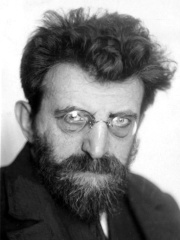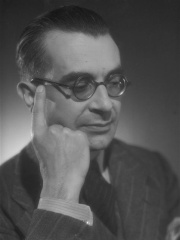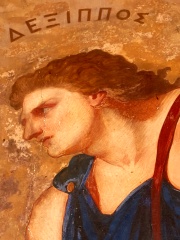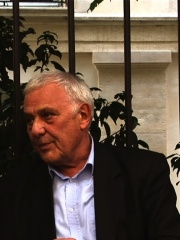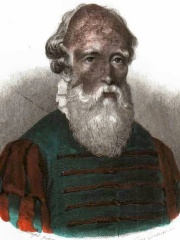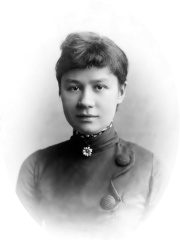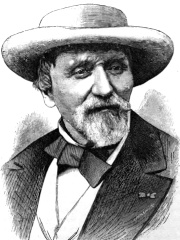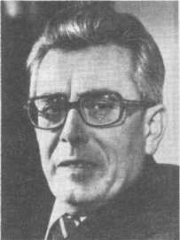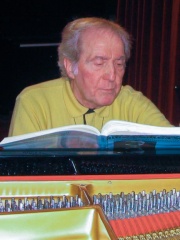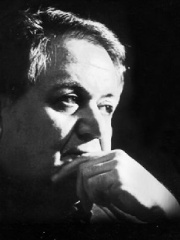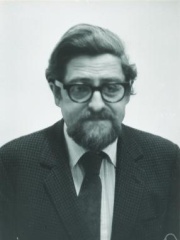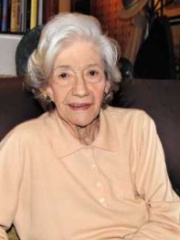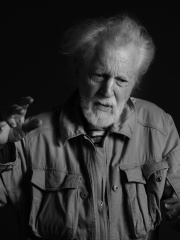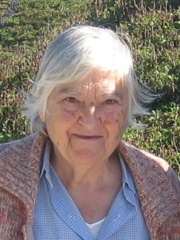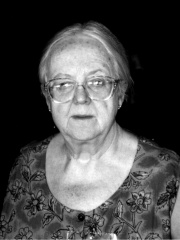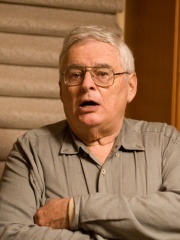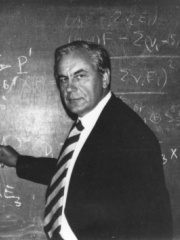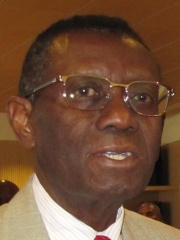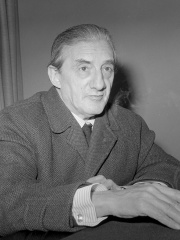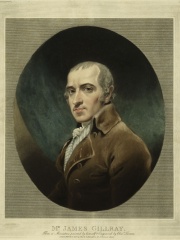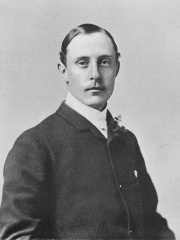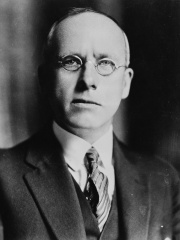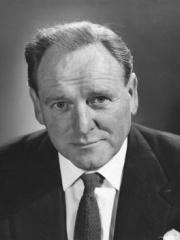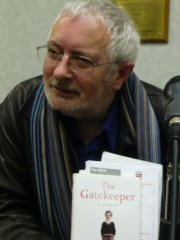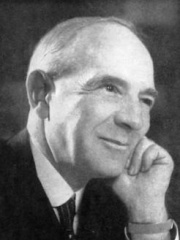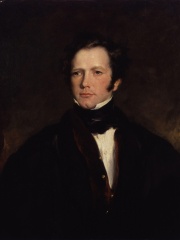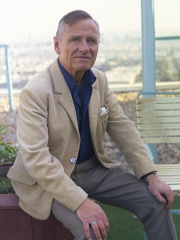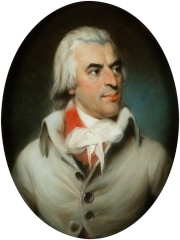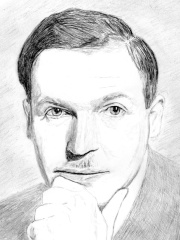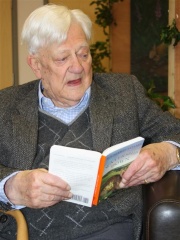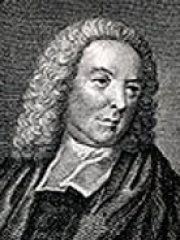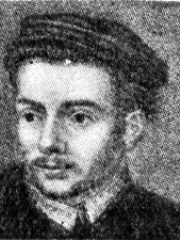Writer
Brian Aldiss
1925 - 2017
EN.WIKIPEDIA PAGE VIEWS (PV)
 Brian Aldiss
Brian Aldiss
His biography is available in 38 different languages on Wikipedia. Brian Aldiss is the 2,170th most popular writer (down from 1,892nd in 2024), the 1,879th most popular biography from United Kingdom (down from 1,447th in 2019) and the 202nd most popular British Writer.
Memorability Metrics
Page views of Brian Aldiss by language
Among Writers
Among writers, Brian Aldiss ranks 2,170 out of 7,302. Before him are Erich Mühsam, Roger Peyrefitte, Per Wahlöö, Antonine Maillet, Dexippus, and Philippe Sollers. After him are Bernard Palissy, Johanna van Gogh-Bonger, Aleksander Chodźko, Yuan Mei, Judith Kerr, and Cesare Zavattini.
Most Popular Writers in Wikipedia
Go to all RankingsErich Mühsam
1878 - 1934
HPI: 62.72
Rank: 2,164
Roger Peyrefitte
1907 - 2000
HPI: 62.72
Rank: 2,165
Per Wahlöö
1926 - 1975
HPI: 62.72
Rank: 2,166
Antonine Maillet
1929 - 2025
HPI: 62.72
Rank: 2,167
Dexippus
210 - 278
HPI: 62.72
Rank: 2,168
Philippe Sollers
1936 - 2023
HPI: 62.71
Rank: 2,169
Brian Aldiss
1925 - 2017
HPI: 62.71
Rank: 2,170
Bernard Palissy
1510 - 1589
HPI: 62.71
Rank: 2,171
Johanna van Gogh-Bonger
1862 - 1925
HPI: 62.71
Rank: 2,172
Aleksander Chodźko
1804 - 1891
HPI: 62.71
Rank: 2,173
Yuan Mei
1716 - 1798
HPI: 62.71
Rank: 2,174
Judith Kerr
1923 - 2019
HPI: 62.71
Rank: 2,175
Cesare Zavattini
1902 - 1989
HPI: 62.71
Rank: 2,176
Contemporaries
Among people born in 1925, Brian Aldiss ranks 147. Before him are Arnaldo Forlani, Aldo Ciccolini, Max Morlock, Manos Hatzidakis, Luciano Leggio, and John Guillermin. After him are Louis Nirenberg, René Moawad, Ana María Matute, Thor Vilhjálmsson, Krishna Sobti, and Etel Adnan. Among people deceased in 2017, Brian Aldiss ranks 137. Before him are Tomas Milian, Marjorie Boulton, Bruce McCandless II, Kate Millett, Jerry Fodor, and Raymond Smullyan. After him are Félix Mourinho, Omar Abdel-Rahman, Igor Shafarevich, Baldwin Lonsdale, Albert Zafy, and Robert Miles.
Others Born in 1925
Go to all RankingsArnaldo Forlani
POLITICIAN
1925 - 2023
HPI: 62.92
Rank: 141
Aldo Ciccolini
MUSICIAN
1925 - 2015
HPI: 62.90
Rank: 142
Max Morlock
SOCCER PLAYER
1925 - 1994
HPI: 62.88
Rank: 143
Manos Hatzidakis
COMPOSER
1925 - 1994
HPI: 62.86
Rank: 144
Luciano Leggio
EXTREMIST
1925 - 1993
HPI: 62.81
Rank: 145
John Guillermin
FILM DIRECTOR
1925 - 2015
HPI: 62.80
Rank: 146
Brian Aldiss
WRITER
1925 - 2017
HPI: 62.71
Rank: 147
Louis Nirenberg
MATHEMATICIAN
1925 - 2020
HPI: 62.64
Rank: 148
René Moawad
POLITICIAN
1925 - 1989
HPI: 62.59
Rank: 149
Ana María Matute
WRITER
1925 - 2014
HPI: 62.48
Rank: 150
Thor Vilhjálmsson
WRITER
1925 - 2011
HPI: 62.45
Rank: 151
Krishna Sobti
WRITER
1925 - 2019
HPI: 62.45
Rank: 152
Etel Adnan
WRITER
1925 - 2021
HPI: 62.43
Rank: 153
Others Deceased in 2017
Go to all RankingsTomas Milian
ACTOR
1933 - 2017
HPI: 63.03
Rank: 131
Marjorie Boulton
WRITER
1924 - 2017
HPI: 62.94
Rank: 132
Bruce McCandless II
ASTRONAUT
1937 - 2017
HPI: 62.88
Rank: 133
Kate Millett
WRITER
1934 - 2017
HPI: 62.85
Rank: 134
Jerry Fodor
PHILOSOPHER
1935 - 2017
HPI: 62.81
Rank: 135
Raymond Smullyan
MATHEMATICIAN
1919 - 2017
HPI: 62.76
Rank: 136
Brian Aldiss
WRITER
1925 - 2017
HPI: 62.71
Rank: 137
Félix Mourinho
SOCCER PLAYER
1938 - 2017
HPI: 62.68
Rank: 138
Omar Abdel-Rahman
EXTREMIST
1938 - 2017
HPI: 62.64
Rank: 139
Igor Shafarevich
MATHEMATICIAN
1923 - 2017
HPI: 62.52
Rank: 140
Baldwin Lonsdale
POLITICIAN
1948 - 2017
HPI: 62.51
Rank: 141
Albert Zafy
POLITICIAN
1927 - 2017
HPI: 62.51
Rank: 142
Robert Miles
MUSICIAN
1969 - 2017
HPI: 62.48
Rank: 143
In United Kingdom
Among people born in United Kingdom, Brian Aldiss ranks 1,879 out of NaN. Before him are John Barbirolli (1899), James Gillray (1756), E. P. Thompson (1924), Andrew Lincoln (1973), Wendy Hiller (1912), and William Renshaw (1861). After him are Peter Fraser (1884), Bernard Lee (1908), Lulach (1030), K. K. Downing (1951), Terry Eagleton (1943), and Ernest Jones (1879).
Others born in United Kingdom
Go to all RankingsJohn Barbirolli
CONDUCTOR
1899 - 1970
HPI: 62.73
Rank: 1,873
James Gillray
PAINTER
1756 - 1815
HPI: 62.73
Rank: 1,874
E. P. Thompson
HISTORIAN
1924 - 1993
HPI: 62.73
Rank: 1,875
Andrew Lincoln
ACTOR
1973 - Present
HPI: 62.73
Rank: 1,876
Wendy Hiller
ACTOR
1912 - 2003
HPI: 62.73
Rank: 1,877
William Renshaw
TENNIS PLAYER
1861 - 1904
HPI: 62.72
Rank: 1,878
Brian Aldiss
WRITER
1925 - 2017
HPI: 62.71
Rank: 1,879
Peter Fraser
POLITICIAN
1884 - 1950
HPI: 62.71
Rank: 1,880
Bernard Lee
ACTOR
1908 - 1981
HPI: 62.70
Rank: 1,881
Lulach
POLITICIAN
1030 - 1058
HPI: 62.69
Rank: 1,882
K. K. Downing
MUSICIAN
1951 - Present
HPI: 62.69
Rank: 1,883
Terry Eagleton
WRITER
1943 - Present
HPI: 62.68
Rank: 1,884
Ernest Jones
PSYCHOLOGIST
1879 - 1958
HPI: 62.67
Rank: 1,885
Among Writers In United Kingdom
Among writers born in United Kingdom, Brian Aldiss ranks 202. Before him are Frederick Marryat (1792), Christopher Isherwood (1904), Marjorie Boulton (1924), Kingsley Amis (1922), Arthur Young (1741), and Richard Aldington (1892). After him are Terry Eagleton (1943), Christina Rossetti (1830), Richard Adams (1920), Martin Amis (1949), Edward Young (1683), and John Skelton (1460).
Frederick Marryat
1792 - 1848
HPI: 63.01
Rank: 196
Christopher Isherwood
1904 - 1986
HPI: 62.99
Rank: 197
Marjorie Boulton
1924 - 2017
HPI: 62.94
Rank: 198
Kingsley Amis
1922 - 1995
HPI: 62.88
Rank: 199
Arthur Young
1741 - 1820
HPI: 62.85
Rank: 200
Richard Aldington
1892 - 1962
HPI: 62.80
Rank: 201
Brian Aldiss
1925 - 2017
HPI: 62.71
Rank: 202
Terry Eagleton
1943 - Present
HPI: 62.68
Rank: 203
Christina Rossetti
1830 - 1894
HPI: 62.65
Rank: 204
Richard Adams
1920 - 2016
HPI: 62.61
Rank: 205
Martin Amis
1949 - 2023
HPI: 62.60
Rank: 206
Edward Young
1683 - 1765
HPI: 62.56
Rank: 207
John Skelton
1460 - 1529
HPI: 62.55
Rank: 208

